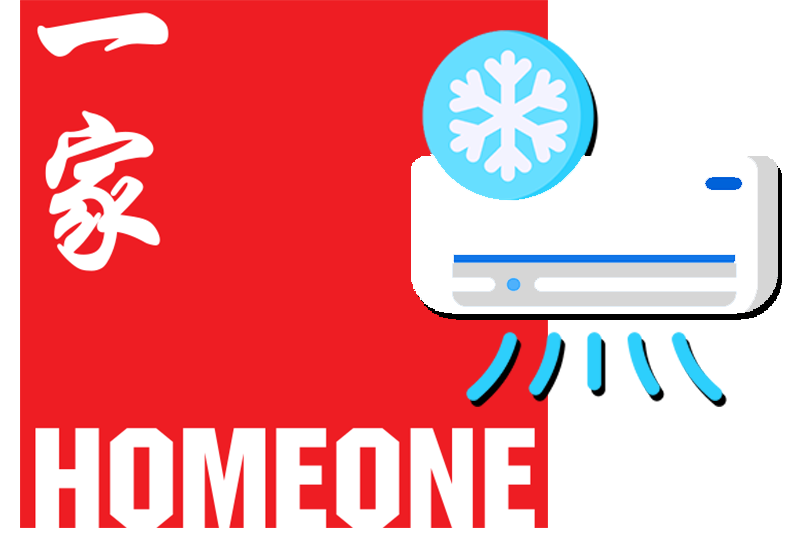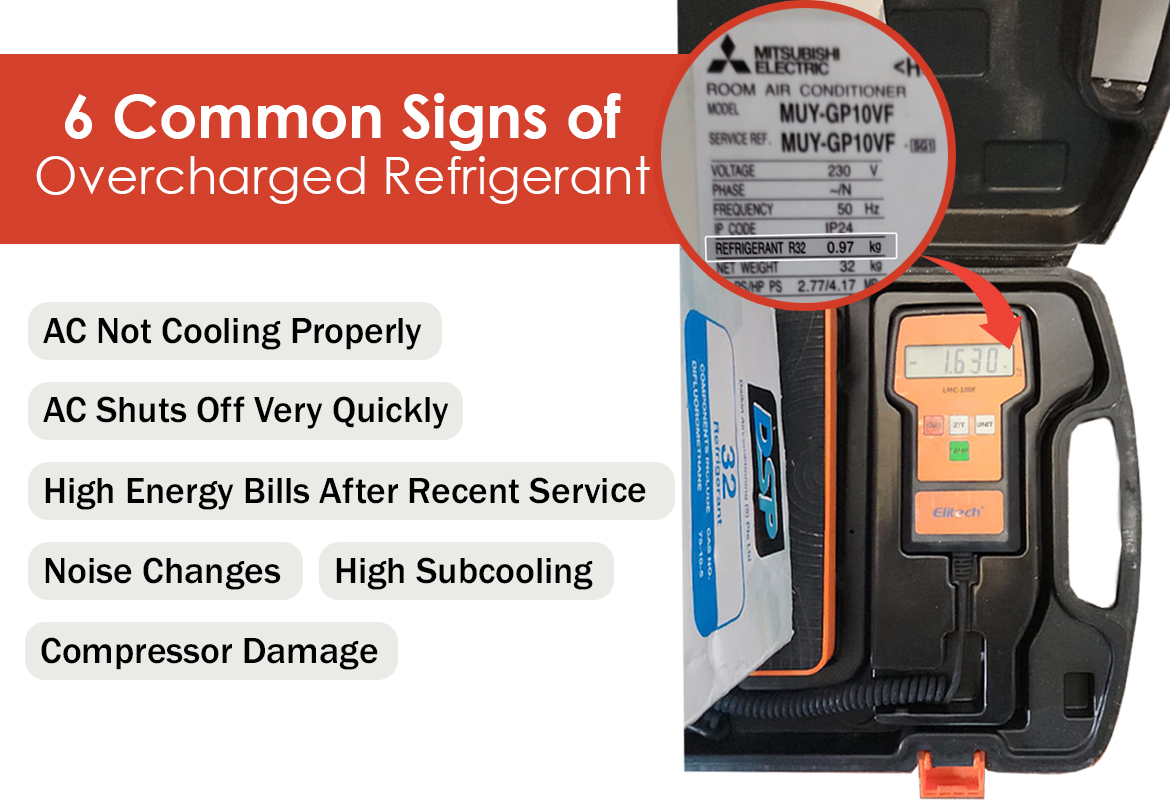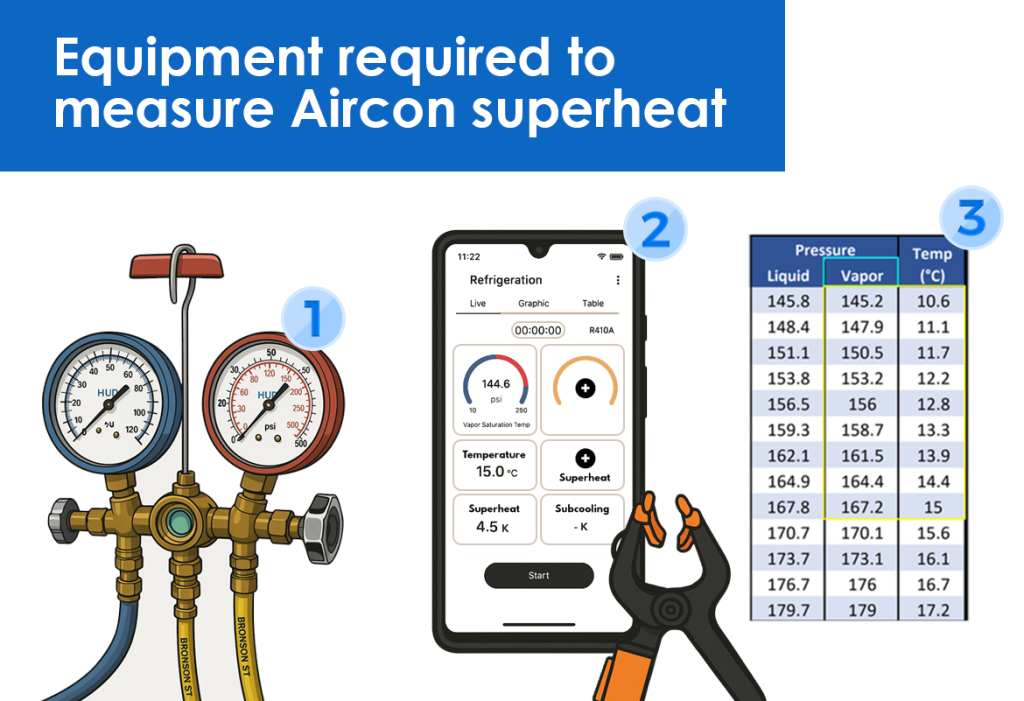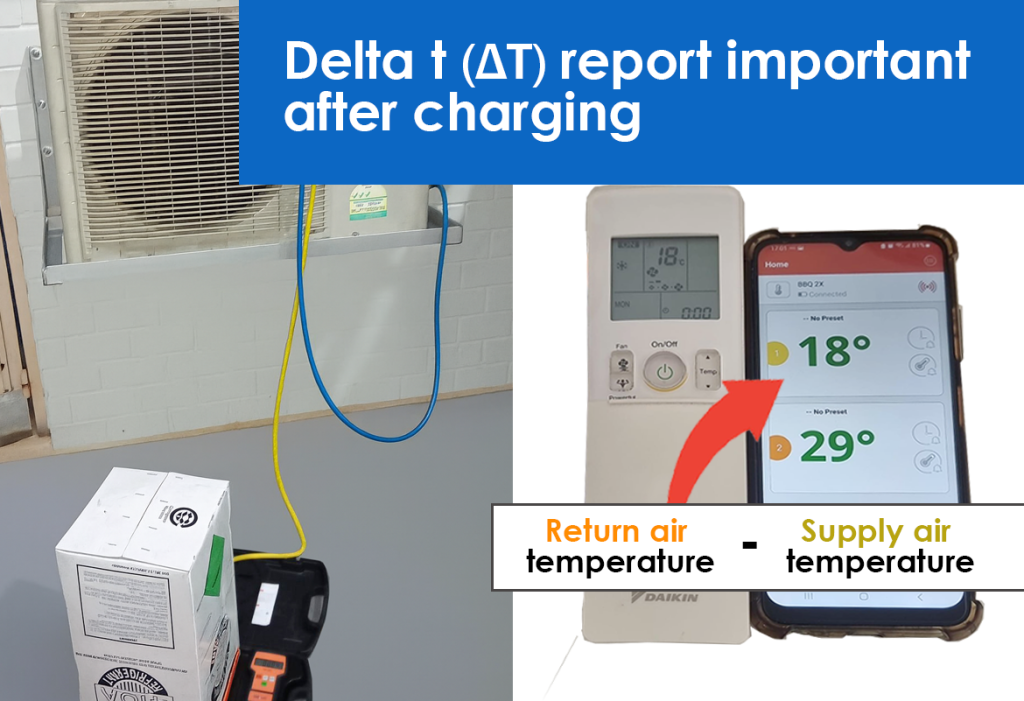Highlights of Aircon Overcharged Refrigerant
- Overcharging refers to adding more refrigerant to an air conditioner system than it needs.
- An overcharged system will struggle to heat properly and can cause serious damage to the compressor.
- It’s difficult to diagnose an overcharged system, but common signs are a lack of cool air, changes in noise, and higher energy bills after refrigerant changes.
- Refrigerant makes your AC system run, but many homeowners are surprised when this mystery fluid starts acting up. That’s why it’s important to learn about overcharged refrigerant symptoms to catch issues before they seriously damage your HVAC system.
- Overcharged refrigerant conditions happen when too much of this essential component is added to the air conditioner. Refrigerant needs to have just the right amount of room in the AC system to do its job, and when there’s an excess of it, the AC can’t run and will suffer damage. If you suspect you have overcharged refrigerant in your system based on these common symptoms, contact an AC repair technician immediately.
1. AC Not Cooling Properly
- Unfortunately, more refrigerant doesn’t mean more cooling. When there’s too much refrigerant in the system, the pressure is too high, and there’s not enough space for the refrigerant to expand into a gas as it absorbs heat. The squeezed refrigerant moves through the system without carrying much, and the AC keeps on working without cooling.
- So, if you feel warm air blowing from your air vents when the system is set to cool your home, that’s a clear sign of overcharged refrigeration.
2. AC Shuts Off Very Quickly
- Normally, the air conditioner responds to signals from the thermostat and cools until it reaches the target temperature. But if the AC system is overwhelmed or blocked, it shuts down whenever it tries to heat. This malfunction can indicate damage or other problems related to an overcharged system.
- Don’t keep trying to restart the air conditioner if it continually shuts down soon after. Instead, schedule an HVAC inspection to determine whether you have overcharged refrigerant in your system. If so, the professional can recommend next steps based on the extent of the damage.
3. High Energy Bills After Recent Service
If your air conditioner is always turning on and off or running constantly without cooling very much, it will use a lot of electricity. That means your monthly energy bills are going to start increasing. If that type of unexpected price change happens soon after refrigerant changes, it’s an indication something went wrong like overcharging, and it’s time to have a professional take a closer look.
4. Noise Changes
A HVAC system struggling to process the flow of refrigerant and has new problems with suction and pressure will often sound different. It may have a higher or lower pitch when trying to work or start rumbling in loud, unexpected ways. If the noise changes after a recent refrigerant addition, it could indicate an overcharging problem.
5. High Subcooling
Let’s get technical: The pros have tools (like specialised thermometers) to measure the superheat and subcooling of the refrigerant in different sections of the air conditioner system. Superheat refers to how much heat the refrigerant can additionally absorb after it turns into a gas (what makes refrigerant so useful) while subcooling refers to how much heat can be removed from the refrigerant after it has condensed back into a liquid. They are controlled by the properties of the refrigerant and the pressure and suction of the AC system.
When the subcooling measures are too high, the refrigerant is likely backed up, preventing the proper release of heat. This status is one of the most common signs of an overcharged system. It’s often paired with a low superheat since the refrigerant doesn’t have enough room to absorb heat and expand.
- Compressors take refrigerant gas and squeeze it as it enters the condenser, encouraging it to release its heat and return to a more liquid state. In an overcharged system with high subcooling, liquid refrigerant typically leaks through the compressor.
- The compressor is designed to deal with gas, not liquid, so this causes serious internal problems (referred to as “slugging”). One of the ultimate and worst symptoms of an overcharged system is compressor damage and eventual failure because of this problem.





Leave a Reply